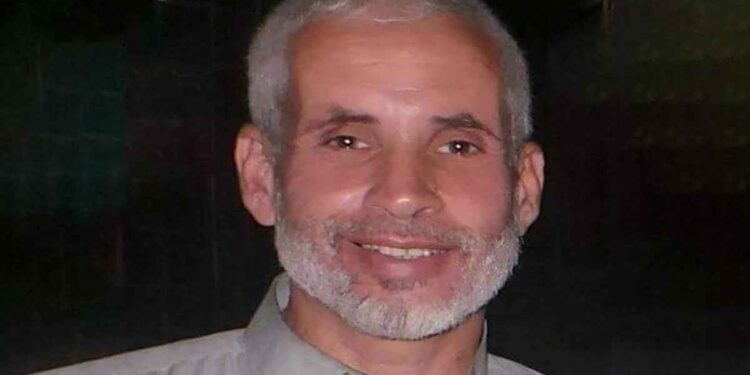The suffering of Egyptian prisoner-of-conscience, Engineer Abdelbaset al-Sayyed Hilal, sixty-one-years-old, continues, after Egyptian authorities subjected him to four “recycled” political trials.
Head of the Mepaco pharmaceutical’s engineering department, Hilal’s ordeal began with his arrest on 10 June 2020 in Tenth of Ramadan City, in the Sharqia governorate. After a week of enforced disappearance, the city’s prosecutor accused him of belonging to and publicizing a terrorist group.
Hilal was tried by the City’s emergency misdemeanors court and acquitted, but the prosecution – by order of the National Security Agency (NSA) – “recycled” the case. Hilal was then acquitted for a second time.
He then appeared before the Zagazig Criminal Court, which decided on 29 June 2021 to release him due to his old age and various health conditions.
However, on 17 July Hilal was “recycled” for a fourth time, by authorities whose human-rights violations remain unchecked. Now in Tenth of Ramadan city prison, Hilal told a doctor that he was “exhausted, and unable to walk easily”, though was told that “we are not asking that you walk”.
Hilal’s suffering has only worsened with each “recycling”. He has two sons, both engineers, who have themselves been imprisoned since 2015 for exercising their freedom to express themselves.
Human rights organisations have said that “recycling” practiced by the Egyptian authorities occurs in two ways. First, citizens are detained for a relatively short period, released, and after detained again on the same charge used in the first instance.
Second, “recycling” occurs through announcing the release of detainees whilst disappearing them within NSA or police buildings, and after charging them again with the same crimes used in the first instance.
Since President Abdel Fattah al-Sisi took power in the country, Egyptian authorities have waged an unprecedented crackdown on dissidents and critics, with 1000s of politically motivated arrests and convictions, typically through unfair trials. Moreover, many have been held without trial for years, often on baseless terrorism-related charges, and in dreadful conditions.
Arab Organisation for Human Rights in the UK (AOHR UK) has repeatedly called on decision-makers across the world to work to protect Egyptian activists, dissidents, and journalists, and underlined that Egyptian authorities have effectively taken many citizens hostage, partly as a means to pressure their families to cease criticizing the regime.
AOHR UK stressed the need to pressure the Egyptian regime to stop the ongoing arrests, to release all detainees, and announce the fate of those who have been disappeared.






























